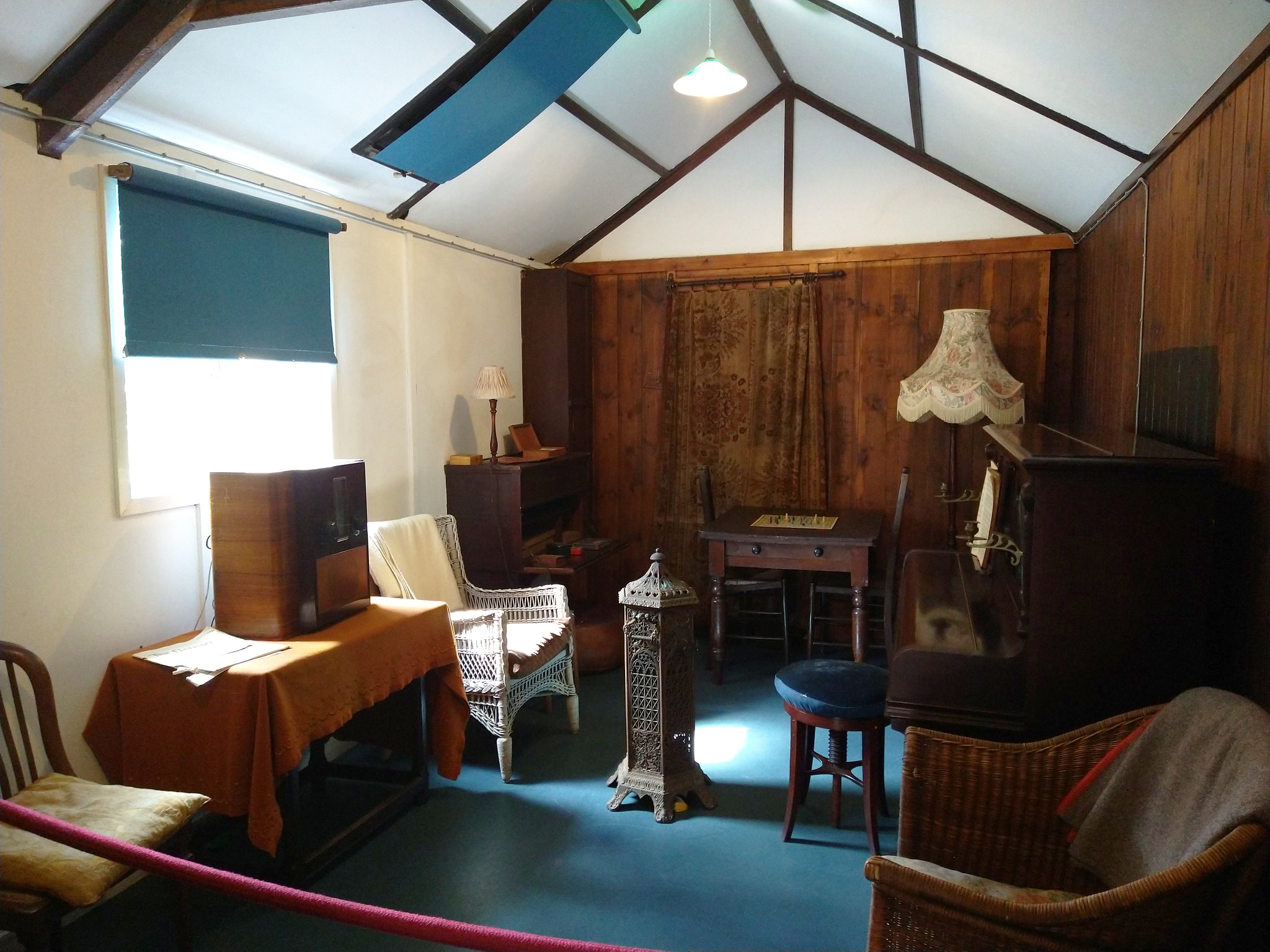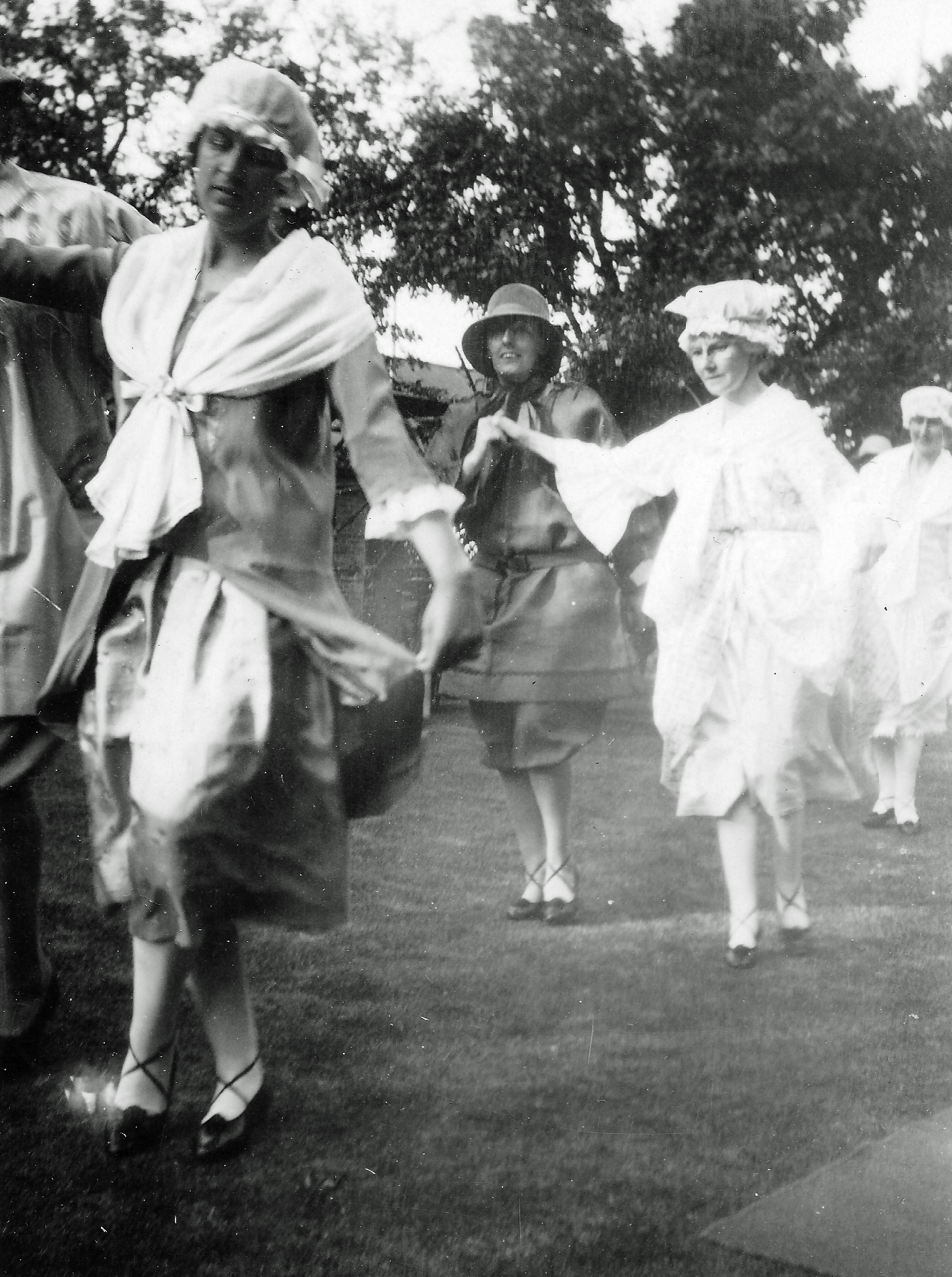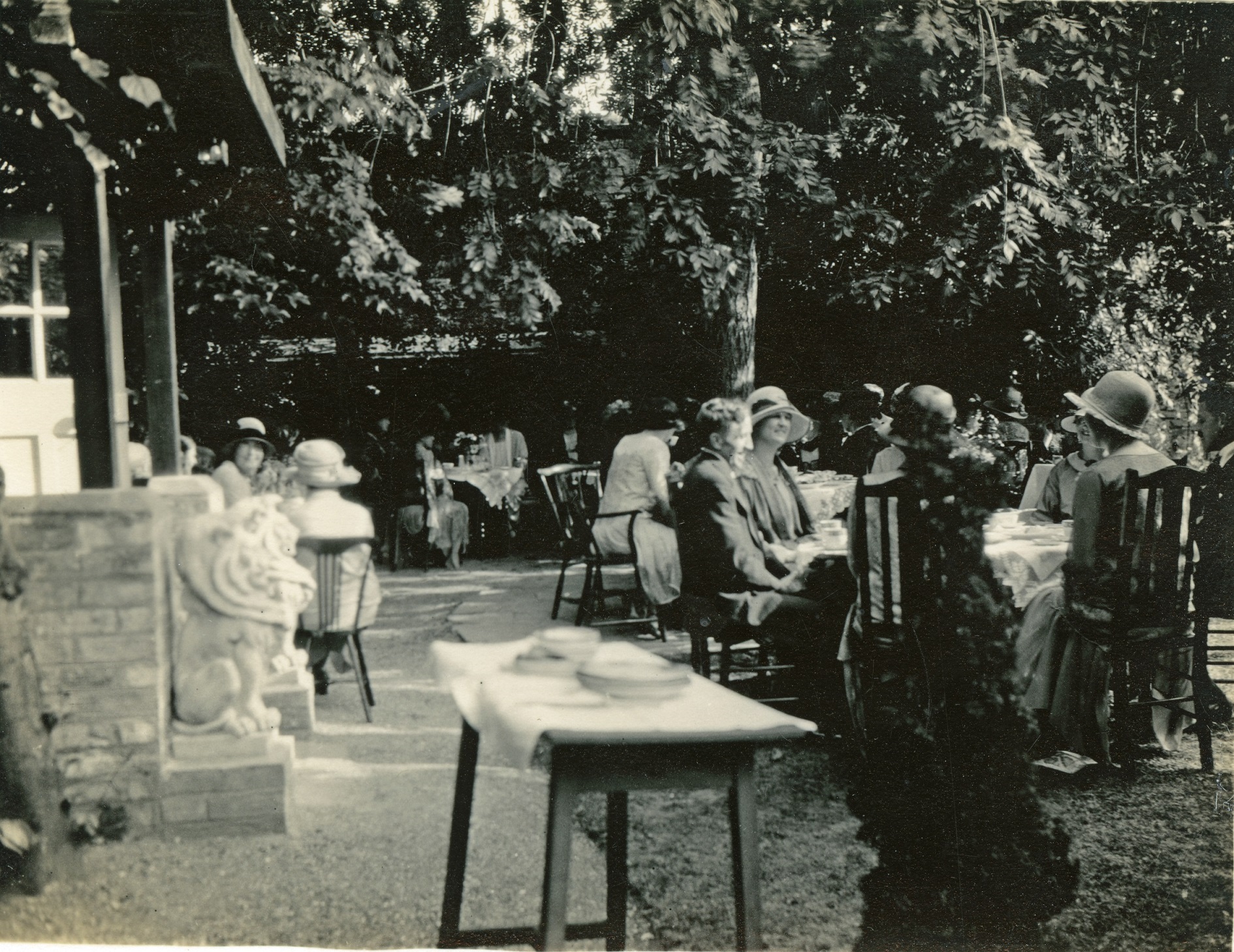Recreation at the Panacea Society- written by volunteer Victoria Cooper
When the members of the Panacea Society weren’t carrying out their numerous religious daily tasks, they could be found listening to the latest broadcasts in the wireless room or hosting a garden party.

The wireless room was used from the 1930s to the 1950s as a communal area for the Panaceans. This space saved money for the society members, as they didn’t have to buy a wireless set for each room or house. The wireless room was a popular area for the society as they could spend time together in a relaxed atmosphere, while playing popular games such as chess, Ludo, Monopoly and darts.

In 1929, the society members came together to perform a two-part play, based on the famous story, Alice in Wonderland. Musical soirees were enjoyed by the earliest society members. These were usually held in Octavia’s house, 12 Albany Road. At these gatherings, Octavia would play the piano in the front room while the society members sang . As the society grew in members, the events became more formal and better organised. Panacea society members were also allowed to visit the cinema twice a week.
The Panaceans held garden parties on the second Friday or Saturday in July. They were held around this time so non-resident society members could travel to Bedford in good weather, and then stay for the General Council Meeting. These parties were held from 1929 until 1932 in The Haven.

For the 1930 party, Octavia typed six pages of notes detailing which items that should be used for the party. She even sketched how the place setting should look. After each party, Octavia would write detailed notes of the aspects that went well, and what could have been improved. These notes would be used when planning parties the following year. These parties were attended by the Panacea members, as well as a select group of invited non-members. The society members and guests would partake in activities, such as ‘potato races’, hooks and rings’, ‘clock golf’ and country dancing. These events were usually organised by Gertrude Wallace, a member of the Society.
Octavia once wrote “Most of us have been taught that we must not enjoy ourselves too much; but now we are beginning to find that God wills us to enjoy his gifts as much as we can”. While these parties were a source of recreation for society members, they were still expected to attend their daily meetings, albeit at a later time.







